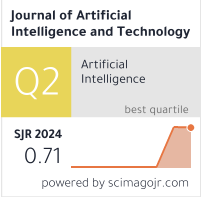Privacy Protection Based on Federated Learning
DOI:
https://doi.org/10.37965/jait.2024.0503Keywords:
convolutional neural networks, federal average algorithm, federated learning, privacy budget, privacy protectionAbstract
With the development of artificial intelligence technology, more and more fields will collect relevant user data and provide users with a better experience through data analysis. But there are also risks involved in the process of data collection, namely how to protect personal privacy data. To address this issue, this study combined differential privacy, convolutional neural networks (CNNs), and federated averaging algorithms to construct a privacy protection model. The study first utilized the federated average algorithm to handle data imbalance, ensuring that each analyzed data is in a balanced state. Then, based on of data balancing, a new algorithm model was constructed using differential privacy and CNNs. Finally, it utilized a number of public datasets to verify the role of the model in privacy protection. The results showed that the model can achieve recognition accuracy of 97.27% and 93.15%, respectively, for data under the influence of privacy budget and relaxation factor. Meanwhile, the classification accuracy of the model for data can reach 95.31%, with a regression error of 9.03%. When the local iteration number of the device was 30, the testing accuracy can reach 95.28%. This indicates that methods on the grounds of federated averaging algorithm and differential privacy can maintain the accuracy of the model while protecting user privacy. The application research of models has strong practical significance.
Published
How to Cite
Issue
Section
License
Copyright (c) 2024 Authors

This work is licensed under a Creative Commons Attribution 4.0 International License.





